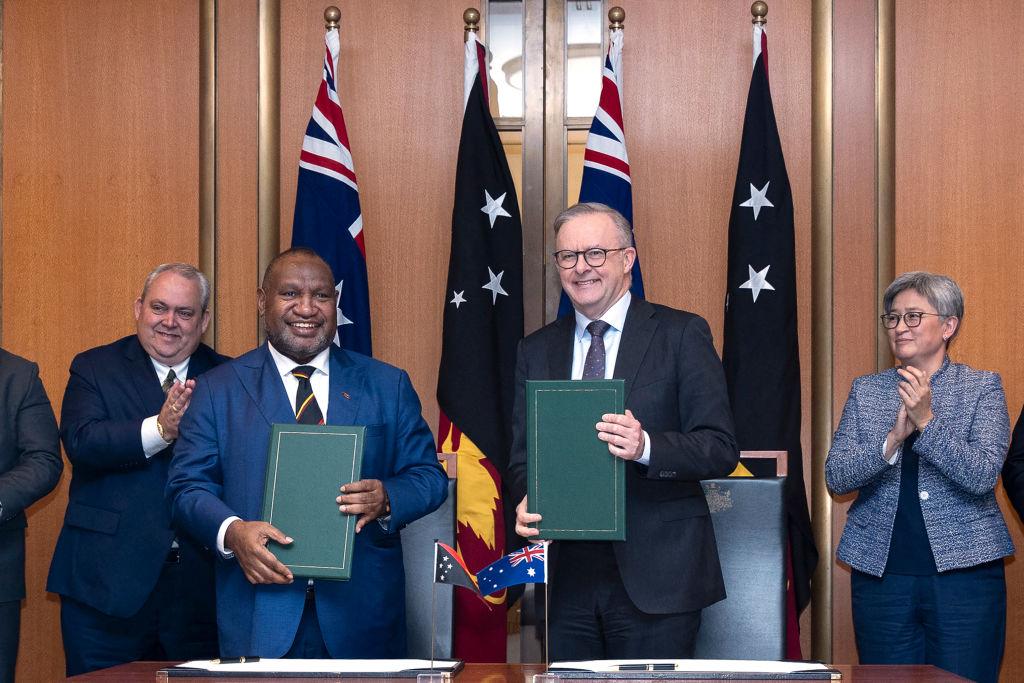Australia and its nearby Papua New Guinea (PNG) have inked a landmark security deal to deepen defence ties as Canberra seeks to counter the Chinese regime’s influence in the Indo-Pacific.
Prime Minister Anthony Albanese and PNG’s James Marape signed the wide-ranging treaty at Australia’s Parliament House in Canberra on Dec. 7, two months after the PNG Prime Minister met with Chinese leader Xi Jinping.




